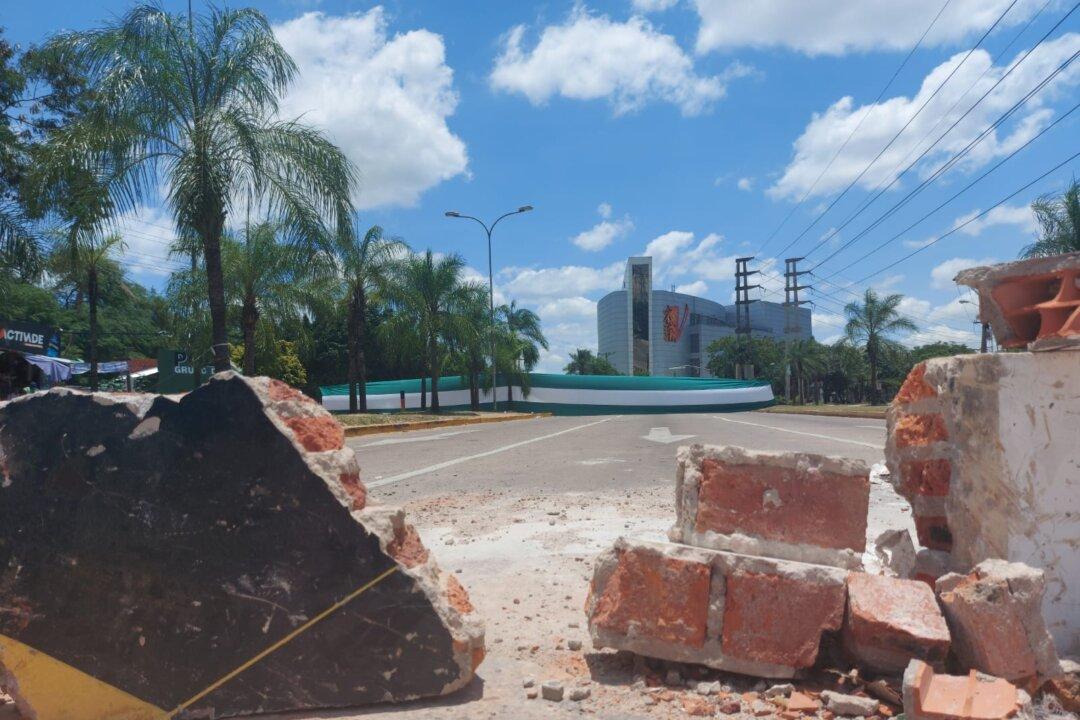SANTA CRUZ, Bolivia—The faint aroma of burnt tires still hangs in the air. Piles of debris choke the streets of Bolivia’s most-populous city as lines of cars stretch in every direction at intersections, crawling through minefields of metal shards, nails, and broken glass.
It’s a jarring reminder that when the locals in Santa Cruz protest and shut down the economy, they mean business.





